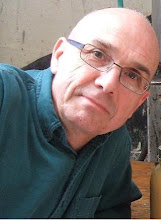www.kootenaycoopradio.com, Mondays, 6:30 am PST
1. Alfred Brendel: Six Bagatelles, from Beethoven: Fur Elise, Eroica Variations, and Bagatelles (Philips)
A bagatelle is a short lively piece, and Beethoven wrote many of those. But he told his publisher that these were "quite the best pieces of their kind that I have written" (from the liner notes).
The great concert pianist Alfred Brendel, with a distinguished career of performing and recording the classics, was born in what is now the Czech Republic in 1931 and now lives in London. He has a website: http://www.alfredbrendel.com/
Brendel recently retired. Read a review of his final concert, performed in Vienna in December, 2008, just before his 78th birthday, here: http://www.guardian.co.uk/music/2008/dec/19/alfred-brendel-vienna
2. Oliver Nelson: Stolen Moments from The Blues and the Abstract Truth (Impulse)
In the 1960's my friends and I all listened to the new stuff like the Beatles and Dylan, but I had a parallel track: I was into the new jazz: Coltrane, Eric Dolphy, Ornette, etc. One of the musicians who shone brightest for me in those days was trumpet player Freddie Hubbard. He died recently in his seventies.
He was at the top of his game in the 1960's, when he led his own groups and played with every other great jazz musician you can think of from that period. Later in his life he ran into a number of health problems and personal problems which detracted from his playing and he never matched his wonderful work from his younger years.
Every solo he played in the 60's was creative, unpredictable, and uplifting. Good examples are his work on Oliver Nelson's The Blues and the Abstract Truth, and Herbie Hancock's Maiden Voyage.
When Freddie Hubbard died recently, Wynton Marsalis, who is a generation younger, said, "Certainly I listened to him a lot.… We all listened to him. He has a big sound and a great sense of rhythm and time and really, the hallmark of his playing is an exuberance. His playing is exuberant."
And to Marsalis' comment I would add that it is dramatic, because the exuberance comes in bursts. His solos often consist of a few phrases that are calm and thoughtful, then the exuberance will burst out for a few bars, then back to being thoughtful, then erupting again, never with clichés or standard licks, never coasting, always fresh. You can hear that in his solo on Stolen Moments.
Think of the astounding personnel on this record: Roy Haynes, drums; Paul Chambers, bass; Bill Evans, piano; Oliver Nelson, tenor saxophone; Eric Dolphy, alto sax and flute; Freddie Hubbard, trumpet.
3. Rakesh Chaurasia and Talvin Singh: Vira from Vira (Times Music)
I was in New Delhi a few years ago, and in one of the CD shops the proprietor told me the only customers who were interested in buying classical Indian music were the westerners. I bought this CD there.
Rakesh Chaurasia is the nephew of Pandit Hariprasad Chaurasia, the eminent player of the classical Indian bamboo flute, or bansuri. The nephew is continuing the uncle's tradition and experimenting with it. The tabla player Talvin Singh is also a classical musician who likes to experiment—in this case by using electronics to produce the traditional drone that you find behind much Indian music.









